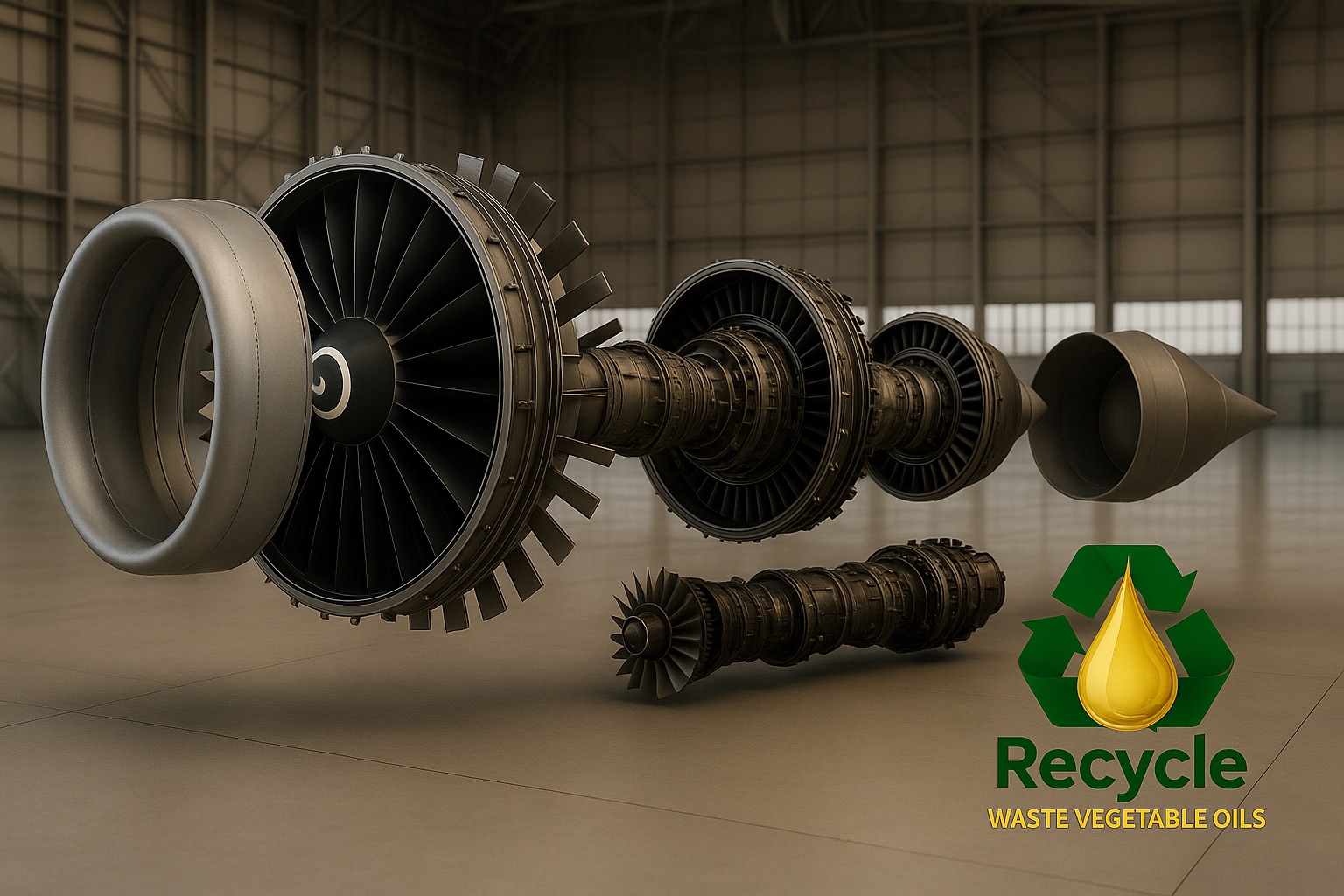Home / Contact Us / About Us / Our Services / North Yorkshire / East Riding Yorkshire / South Yorkshire / West Yorkshire / Greater Manchester / Derbyshire / Reference / FAQ

Jet Engine Technology and the Future of Biofuels
The aviation industry is undergoing a transformative shift toward sustainability. One of the most promising developments in recent years is the use of biofuels in jet engines. These renewable fuels, often derived from waste vegetable oils and animal fats, are helping reduce carbon emissions and dependence on fossil fuels. By understanding how jet engines operate and how biofuels fit into the equation, we can better appreciate their role in creating a cleaner, more sustainable future for air travel.
Understanding Jet Engines
Jet engines are complex machines designed to produce thrust through the combustion of fuel. The most common type of jet engine used in commercial aircraft is the turbofan engine. These engines consist of several key components including the fan, compressor, combustion chamber, turbine, and exhaust nozzle.
The process begins as air enters the intake and is compressed by the compressor. This compressed air is then mixed with fuel in the combustion chamber, where it is ignited. The resulting high-pressure gases expand rapidly, spinning the turbines and generating thrust as they exit the exhaust.
The Role of Fuel in Aviation
Traditional jet engines rely on kerosene-based fuels such as Jet-A or Jet-A1. While these fuels are highly efficient, they are derived from petroleum and contribute significantly to greenhouse gas emissions. The need to reduce aviation’s carbon footprint has driven researchers and industry leaders to explore alternative fuel sources, particularly those that can be used with existing engine technologies.
What Are Biofuels?
Biofuels are renewable fuels made from organic materials such as plant oils, animal fats, and agricultural waste. In the context of aviation, the most widely used biofuel is Sustainable Aviation Fuel (SAF). SAF is produced through processes like HEFA (Hydroprocessed Esters and Fatty Acids), which refine waste vegetable oils and animal fats into a fuel that mimics the properties of conventional jet fuel.
SAF is considered a drop-in fuel, meaning it can be used in existing jet engines without requiring significant modifications. This compatibility allows airlines and aircraft manufacturers to adopt sustainable practices without overhauling their infrastructure.
Waste Vegetable Oils as a Fuel Source
One of the most environmentally friendly sources for SAF is waste vegetable oil (WVO). These oils are typically collected from commercial kitchens, restaurants, and food manufacturers after they have been used for cooking. Instead of disposing of these oils as waste, they are collected, filtered, and refined into high-quality fuel.
This process not only diverts waste from landfills and waterways but also provides a sustainable feedstock for aviation fuel. The carbon emissions associated with burning SAF from waste oils are significantly lower than those from fossil-based fuels, making it a key tool in the fight against climate change.
How Biofuels Work in Jet Engines
The use of SAF in jet engines follows the same basic principles as conventional fuel. The biofuel is mixed with compressed air in the combustion chamber and ignited, producing the thrust necessary for flight. Because SAF has similar chemical properties to Jet-A1, it can be used in blends of up to 50% with traditional fuel, with ongoing efforts to certify 100% biofuel usage.
Modern jet engines are built to strict standards for safety, performance, and efficiency. Numerous tests and in-flight trials have shown that SAF meets these standards, providing a seamless transition to greener aviation.
Benefits of Using Biofuels in Aviation
There are several key advantages to using biofuels in jet engines:
- Lower carbon emissions, contributing to global climate goals
- Reduced reliance on finite fossil fuel resources
- Support for the circular economy by turning waste into energy
- Compatibility with existing infrastructure and engine designs
- Potential to support local industries and waste management systems
Challenges and Considerations
Despite their benefits, the widespread adoption of biofuels in aviation is not without challenges. Producing SAF at scale requires significant investment in technology and infrastructure. Additionally, the collection and refining of waste vegetable oils must be done efficiently to ensure a consistent and reliable supply.
There are also regulatory and certification processes that biofuels must pass before being used in commercial aviation. However, these challenges are being actively addressed through international collaboration and innovation.
Environmental and Economic Impact
By replacing fossil fuels with SAF made from waste oils, the aviation industry can significantly reduce its environmental footprint. Every liter of SAF used reduces lifecycle carbon emissions by up to 80% compared to traditional jet fuel. This shift not only helps combat global warming but also positions airlines and operators as leaders in sustainable transportation.
Economically, the development of biofuel infrastructure creates new jobs in waste collection, refining, and distribution. It also opens up opportunities for businesses involved in renewable energy, environmental compliance, and green technology.
The Future of Jet Engines and Biofuels
The integration of biofuels into jet engine technology is just the beginning. Researchers are exploring advanced engine designs that further optimize fuel efficiency and emissions. These include open-rotor engines, hybrid-electric propulsion, and hydrogen-powered turbines.
While these technologies are still in development, biofuels represent a practical and immediate solution. As supply chains and production capacity expand, SAF is expected to play a central role in the decarbonization of aviation over the coming decades.
Conclusion
Jet engines have long been a symbol of innovation and human achievement. By fueling them with biofuels derived from waste vegetable oils, we take a meaningful step toward a cleaner, more responsible future in aviation. Whether you're an airline operator, fuel supplier, or environmentally conscious traveler, the transition to sustainable aviation fuel is a shared opportunity to reduce emissions and support the health of our planet.






